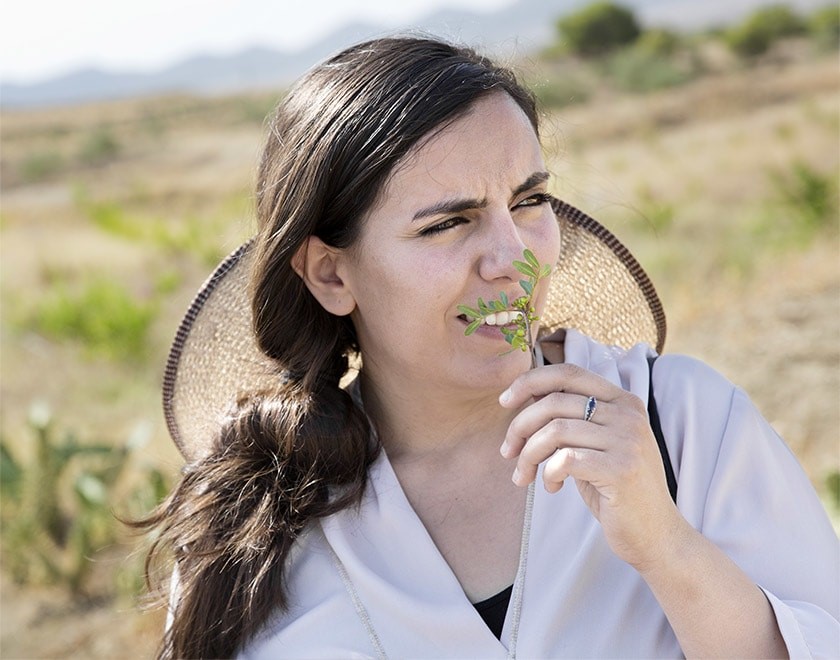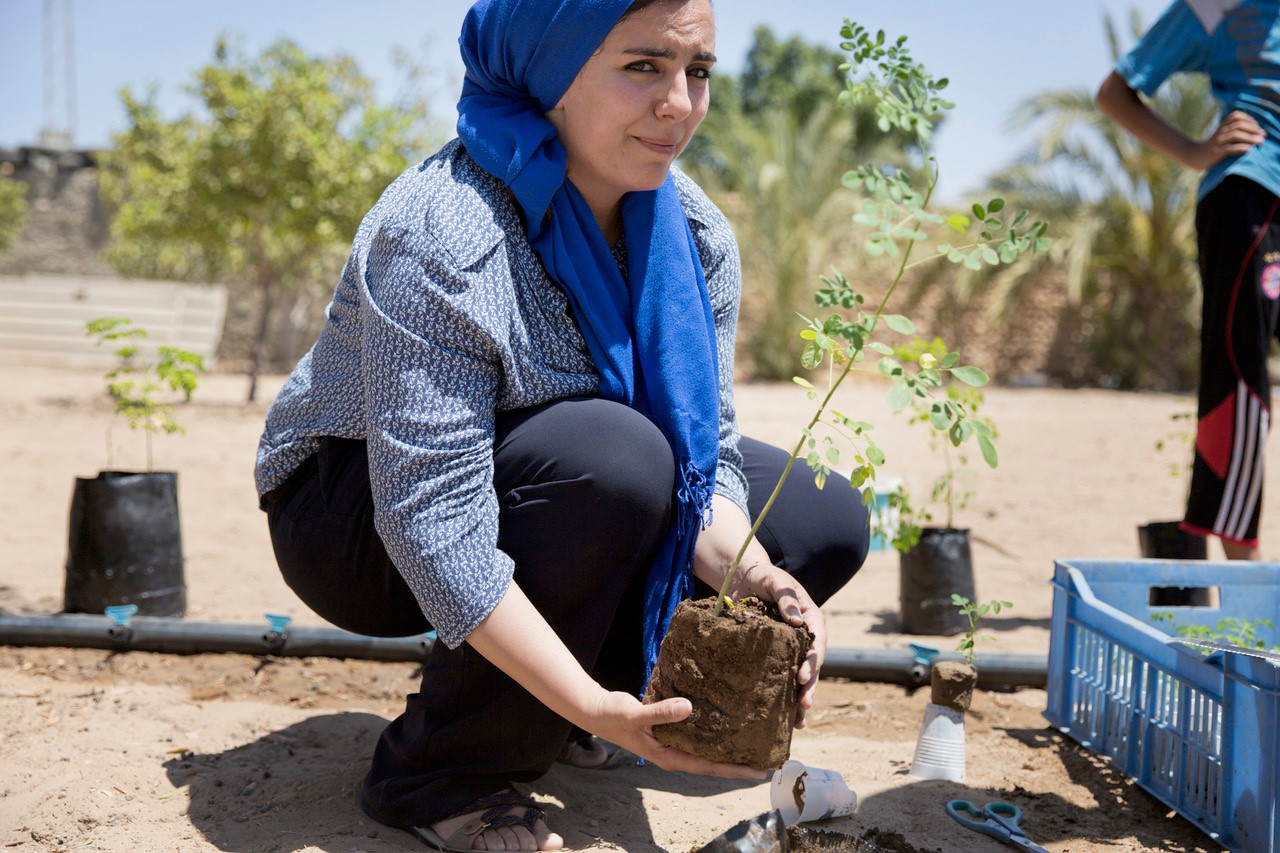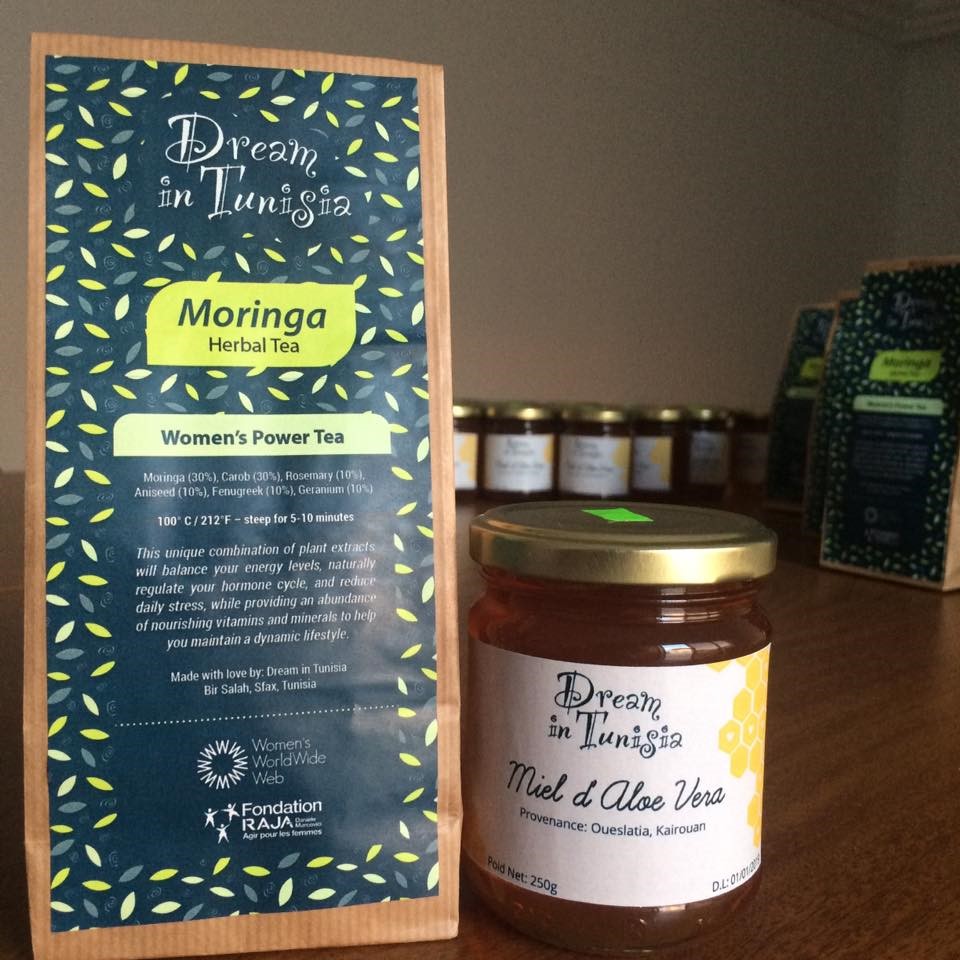As a young girl Sarah Toumi used to visit her family in Tunisia, where she witnessed firsthand the destructive effects of desertification. “Within 10 years rich farmers became worse off, and in 10 years from now they will be poor. I wanted to stop the desert in its tracks,” French-born Toumi says.
An increase in the severity of droughts has led to an estimated 75 per cent of Tunisia’s agricultural lands being threatened by desertification. The agricultural sector accounted for 9%, 15% and 9% of GDP in Algeria, Morocco, and Tunisia respectively as of 2012. The farming industry employs 40% of the population in Morocco, 11% in Algeria, and 16% in Tunisia.
Recent global climate change and disruption of the environmental ecosystem, predominantly from deforestation, has led to rain water becoming scarce. The average annual rainfall, as of 2014, is below 300 mm in vast areas of the Arab Maghreb sub region, creating an arid to semi-arid climate. Water scarcity has reached a critical point in the region, and severe drought is expected in the future.

Toumi says, “Due to the absence of understanding, a concentration of short-term gains, and a lack of focus on sustainability among farmers, rural communities in the Maghreb region continue to intensively cultivate the same crops inherited from their parents.”
She says farmers usually plant olives and almonds, irrigating them with ground water, 80 per cent of which is salty in Tunisia. However, irrigating land with salty water increases the salt content within the soil, rendering it acidic and infertile after three crop cycles. This allows desert sands to invade the infertile soil.

Toumi explains: “The effects of desertification not only disrupt the environmental ecosystem but studies have shown there is a link between desertification, hunger and poverty.”
So when her father passed away in 2012, Toumi made the bold decision to move to Tunisia with the aim of holding back the desert so that farmers could survive.
She says, “When I saw the impact of desertification on my family in Tunisia, and on the farmers of my community, I realised we need to solve this issue in order to secure incomes and also empower women.”
The 30-year-old former Sorbonne University student founded her social enterprise ‘Acacias for All’ to spread the adoption of sustainable trees as a barrier against the encroaching desert and salinisation. Toumi’s approach is to advise farmers to choose crops that are better suited to the new environment.
Acacias for All also encourages farmers to become economically self-sufficient, organising them into cooperatives to manage the new farming cycle, from planting to selling. “These practices provide new economic opportunities,” Toumi explains. “If farmers plant 20 different species of tree on a single hectare of land, including Acacia, they can expect to earn US$20,000–$30,000 annually.”

Toumi says Acacia trees spearhead her organisation’s sustainable farming philosophy because “their long roots bring essential nitrogen and fresh water to the surface, reduce the salt density of the soil, revitalise the land, and create a greenbelt to prevent further erosion.” To supply income, the Acacia raddiana produces Arabic gum within four years, while Moringa powder is produced from the leaves of another plant, Moringa oleifera, after only two months, offering quick returns.
To change the farmers’ production practices, Toumi began working with female rural farmers in the village of Bir-Salah in Tunisia in 2011. She recognised that women represent a strong entry point into the agricultural sector, as they are more receptive to change.
Most women own small pieces of land and have no adequate access to education or markets. “Convincing male farmers is challenging,” she says.
Toumi regularly met with the women, discussed their problems, and offered her solutions. She conducted field visits to talk with the women and also built a demonstration centre in Bir-Salah in 2012. The demonstration centre contains a seed nursery where sustainable farming practices are used by Toumi and her team.
The entrepreneur has since built a second seed nursery where she grows Acacia trees until they are ready for cultivation in rural farms. Toumi has been able to impact the lives of 483 women by giving them Acacia trees for their farms—each woman receiving 10 trees. Through a grant from the Orange Foundation in 2013, Sarah was able to plant 5000 Acacia seeds in her new seed nursery.
By September 2016, more than 130,000 acacia trees had been planted on 20 pilot farms, with farmers recording a 60 per cent survival rate. Toumi estimates that some three million acacia trees are needed to protect Tunisia’s arable spaces.
Now armed with a 40-strong team, Toumi says she will take the Acacias for All vision further afield. She plans to plant a million trees by 2018, re-green 50,000 hectares of lost land, and spread her sustainable message to Algeria, Morocco and Egypt within the next five years.
And with that, she’ll be holding back not one body of sand, but a whole expanse of deserts.
